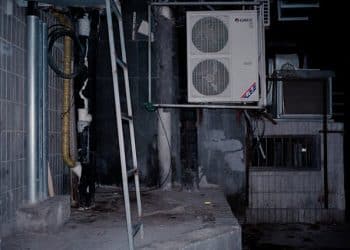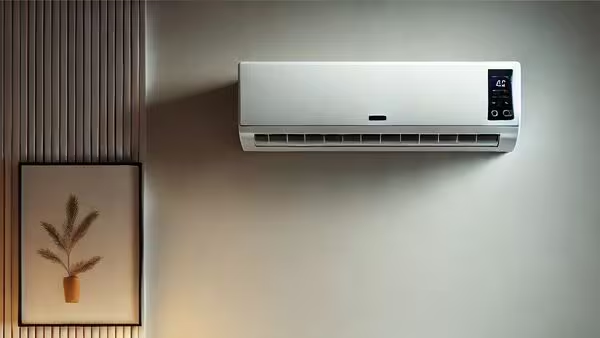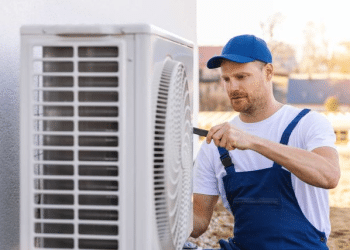Table of Contents

Glendale HVAC professionals are usually busy during the summer and spring because air conditioning units tend to fail during these seasons. Once temperatures spike in the summer, air conditioners have to work overtime to keep you cool.
Hence, it raises the question. Does home warranty cover HVAC? Can a home warranty plan subsidize the cost of fixing or replacing a broken AC unit? It all depends on the program and where you live.
What is HVAC Home Warranty?
HVAC Units have a limited lifespan. This is true for every appliance. The wear and tear are gradual. At some point, your HVAC unit will lose all functionality.
Once that happens, you can choose to either repair or replace it. Homeowners hate repairing air conditioners. Replacements are even less appealing. New HVAC units cost hundreds, if not thousands of dollars. The average consumer would rather abandon a dead or defective HVAC. But sometimes, you don’t have a choice in the matter. Some summer seasons are too warm. Hence, you either bite the bullet and fix your AC or suffer for the next few months.
A home warranty plan solves this problem. It can drastically reduce the cost of fixing or replacing an AC unit. Even if you don’t expect your air conditioner to fail in the immediate future, an HVAC home warranty can be of great help.
Does Home Warranty Cover HVAC?
Home warranties cover HVAC. Though, this is not true for every situation. Some people live in homes that came with a home warranty, and they automatically assume that the contract will cover their HVAC unit down the line when it fails.
But you can’t make such assumptions. Instead, speak to your service provider to gain clarification. Even though most home warranties cover HVAC units, the level of coverage will vary depending on the plan.
Does Home Warranty Cover HVAC Replacement?
More often than not, a plan that repairs broken HVAC units will also replace them where necessary. However, replacement is the last resort. Your service provider will only take this step if the HVAC unit in question is beyond repair.
Do You Need A Home Warranty That Covers HVAC?
It would be best if you had a home warranty that covers HVAC because AC units malfunction all the time. In addition, HVAC repairs cost an average of $500.
Don’t forget, AC units do not malfunction once or twice. Depending on the frequency of use, you may have to repair your HVAC every few months. If you don’t have the money, you run the risk of freezing in the winter, and that’s bad for your health.
If you don’t want to spend exorbitant sums on HVAC replacement and repair, get a home warranty plan that covers the cost of repair and replacement.
Is Home Warranty Better Than Manufacturer’s Warranty?
Yes, a home warranty for your HVAC is superior. Every major HVAC brand offers a manufacturer’s warranty. When you buy an HVAC, the manufacturer will cover the cost of repair and replacement.
Some brands only cover the cost of repair. But the best ones will get you a new HVAC if the old one breaks. However, a manufacturer’s warranty cannot compete with a home warranty because it usually lasts a year. Once that year elapses, you cannot rely on the manufacturer’s warranty to cover the HVAC.
A home warranty doesn’t have those limitations. Most times you are better off having both. But if you had to choose one, a home warranty is better.
What Are The Pitfalls of HVAC Home Warranty?
A home warranty that covers HVAC units is essential. But you have to keep some of the pitfalls of these plans in mind:
1). Repair VS Replacement
If you are to choose, would you repair or replace your HVAC? Most homeowners prefer to repair broken air conditioners because replacement is far more expensive. Most times, replacement is better. Fixing a defective HVAC unit simply delays the inevitable.
In some situations, a repaired HVAC cannot perform at the same level as a new one. Even if you fix them, their inefficiency could cause your electric bill to skyrocket.
Unfortunately, many home warranty contracts won’t give you a choice. These companies want to save money. This means repairing rather than replacing your broken HVAC
They wouldn’t mind repairing the HVAC as many times as possible. What if the HVAC unit is beyond repair? More than likely, they will find the cheapest replacement on the market. But don’t expect them to give you a choice in this matter. Some might be nice enough to ask your opinion. But in the end, they don’t care what you think.
2). Technical Assistance
A home warranty contract won’t let you select a contractor to fix your HVAC. They want the cheapest possible solution. That mindset compels them to find the least experienced technicians on the market because their rates are low.
3). Limitations
Home warranties don’t cover everything. This won’t shock you if you read the fine print. Home warranty contracts are filled with loopholes. For instance, they don’t have to pay you if the damage to your AC was caused by extreme weather.
If a lightning strike fried your HVAC, or if flooding destroyed your air conditioning system, don’t expect the home warranty to pay for the cost of repair or replacement.
They are just as strict about maintenance. For example, if the HVAC died because you failed to service it, they are not obligated to repair or replace it.
Home warranty contracts are complicated. Don’t be so quick to sign one. Ask a professional to read the paperwork. Make sure the plan provides coverage for every significant eventuality.
You can assuage some of your doubts by calling a Glendale HVAC service provider right now. Ask them to give your AC a tune-up. Schedule routine maintenance to stay in line with your home warranty’s requirements.
Home warranties are not bad. Every homeowner should think about signing up for a plan. But the peace of mind they offer isn’t worth anything if you cannot trust them to protect your interests. Unfortunately, some companies are cheap, and they will use every loophole they can find to escape their financial obligations to you.
Choose your service providers carefully. Limit your selection to home warranty providers that have a reputation for prioritizing the needs of their clients over everything else.







